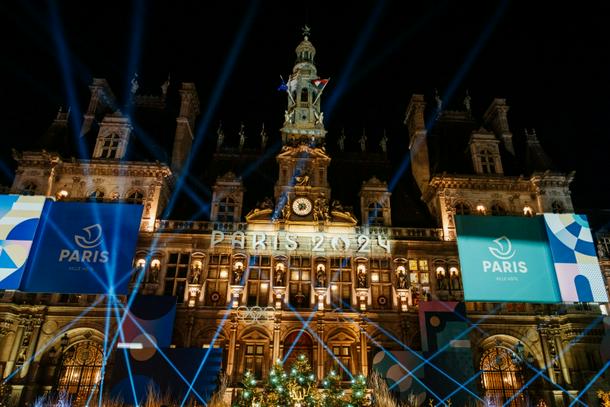Pressure on Paris Games ‘to kickstart new Olympic golden era’
Paris, France – The upcoming Paris Games have the potential to rejuvenate the Olympic brand following the challenges of the past few editions, according to former IOC marketing executive Terrence Burns. With just six months left until the opening ceremony, organizers are facing obstacles such as security concerns over the unconventional ceremony location and the implementation of a digital ticketing system.
The opening ceremony, known for its French artistic flair, will take place on the river Seine instead of a stadium. Burns acknowledges that the world has changed significantly since the ceremony plan was approved, and emphasizes the importance of addressing security issues to ensure the success of the Games.
Paris has a great opportunity to make a significant impact on the Olympic movement and the world, as it will be the first Games since London in 2012 to have a sense of comparative opportunity, according to Burns. He believes that Tokyo 2020 and the 2022 Beijing Winter Olympics, while excellent, had limited global impact due to strict Covid protocols. Rio in 2016 faced organizational problems, while Sochi dealt with doping controversies and issues regarding the LGBTQ community in Russia.
Therefore, Paris has the responsibility to redefine the image of the Games, which presents a formidable challenge. Burns hopes that Paris 24 will shine brilliantly and contribute to revitalizing the Olympic brand and Games worldwide. He emphasizes the rarity and difficulty of achieving beautiful and inspiring things, stating that if they were easy, they would be mundane.
Ticketing will be a crucial test for the Paris Games. The organizers will strive to avoid a repeat of the ticketing chaos witnessed during the 2022 Champions League final, where French officials wrongly blamed Liverpool fans when the police were actually responsible. The introduction of a digital ticketing system adds further complexity. Michael Payne, the former head of marketing for the IOC, highlights the importance of thorough testing to avoid potential problems if the system experiences technical difficulties or cannot handle the load.
World Athletics President Sebastian Coe expresses dissatisfaction with ticket prices, comparing them unfavorably to those of the 2012 London Olympics, which he organized. However, British Olympic Association chair Hugh Robertson believes it is crucial to have tickets at various price points to ensure accessibility and sustainability. Robertson commends the organizing committee for finding a balance, with general ticket prices starting at 24 euros ($26), and selling over seven million tickets already, of which nearly half are priced at 50 euros or less.
The ongoing conflict in Ukraine casts a shadow over the Paris Games. However, Burns, Payne, and Robertson agree that a Ukrainian boycott in response to the presence of limited Russian competitors would only harm the athletes. Payne believes that Ukraine can make a stronger statement by participating rather than abstaining. Burns suggests that the criteria set by the IOC—no team sports, no athletes with military or security connections, and no athletes who have supported the war—may render Ukraine’s threat unnecessary, as the Russian NOC and government have already stated they will not support athletes who meet the IOC’s participation criteria.
In conclusion, the Paris Games hold significant potential for revitalizing the Olympic brand and shaping the future of the Games. The challenges faced in terms of security, ticketing, and geopolitical tensions must be overcome to ensure a successful and impactful event.























































